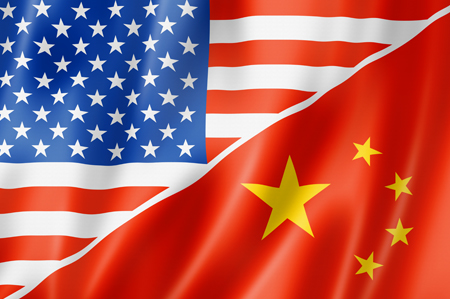Farmers Concerned About Trade War With China
Category: Policy
 (AgWeek) – Uncertainty about trade under the Trump Administration continues with recent tariffs on imports of steel and aluminum, leaving U.S. agriculture concerned about a possible trade war, especially with China.
(AgWeek) – Uncertainty about trade under the Trump Administration continues with recent tariffs on imports of steel and aluminum, leaving U.S. agriculture concerned about a possible trade war, especially with China.
President Donald Trump on March 1 announced plans for import tariffs of 25 percent on steel and 15 percent on aluminum. Trump didn’t specify which countries the tariffs would apply to. However, it did trigger response from Canada, the European Union, Mexico, Australia and China.
Soybean farmers are especially concerned about China since the country is their No. 1 customer.
“It scares us to death, because 60 percent of our soybeans are exported and China takes $14 billion worth of soybeans and soybean products. So, it’s a real concern,” says American Soybean Association President John Heisdorffer.
Ron Moore, chairman of the ASA, says Chinese tariffs on U.S. beans would be devastating to the market, because 30 percent of soybeans grown are exported to China and it comes at a time when farmers are already struggling with low farm income.
“I think it would be very negative in the short term, and it would take two to three or four years before we could recapture that market back again,” Moore says.
The trading relationship the U.S. soybean industry has with China spans nearly 35 years, and Moore says it has been mutually beneficial.
“They need our soybeans as much as we need them to buy our soybeans, so it’s critically important that we do that, have that trade relationship with them,” he says.
Heisdorffer agrees that China wants U.S. soybeans, so he’s hopeful that will keep them in the safe zone.
ASA leaders admit the U.S. soybean industry has been bracing for retaliation from China. However, the sorghum industry was dealt the first blow.
“On the fourth of February the Chinese government filed an investigation, both countervailing duties and anti-dumping investigation against U.S. sorghum,” says Tim Lust, CEO of the National Sorghum Growers Association.
They’re currently in the second phase of the World Trade Organization investigation and have already felt a market impact.
“We have seen our individual producers (just with the announcement of the investigation) see a drop in prices and in some cases a significant drop in prices,” Lust says.
Corn farmers have also faced trade disruptions in the last several months, with Chinese tariffs on U.S. dried distillers grains and ethanol, and they hope corn isn’t next.
“In a trade war, if they would start putting tariffs on things coming out of the country that would be detrimental to the U.S., it’ll affect farmers’ bottom line,” says Kevin Skunes, president of the National Corn Growers Association.
U.S. Grains Council officials emphasize China’s tariffs are just a speed bump as they need U.S. product to feed a growing middle class and as they push to 10 percent ethanol.
“They did place a tariff on U.S. ethanol going into China, but despite that tariff we’ve continued to see some ethanol exports going into China,” says Kimberly Atkins, vice president and chief operating officer.
She says they continue to work on the Chinese market because of its enormous potential.
“Of course, it’s concerning to see this back and forth trade dispute, but the U.S. Grains Council is really committed to the long game in terms of staying engaged,” Atkins says.
U.S. Secretary of Agriculture Sonny Perdue says while there’s reason for anxiety, he’s hopeful they can avoid a trade war and protect U.S. agriculture.
“We need to have efforts that make sure that agriculture is not harmed in a way that would be hurtful to any kind of tariff negotiations,” Perdue says.
World Trade Organization Director General Roberto Azevedo expressed concern over Trump’s plan and says the potential for escalation is real. In addition to concerns about retaliation from China, the president of the European Commission says he’ll bring forward a proposal for WTO-compatible countermeasures against the U.S. in the coming days.




